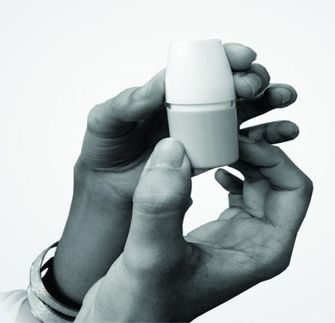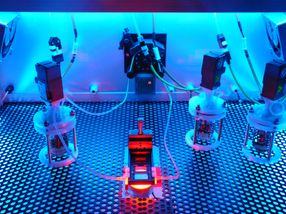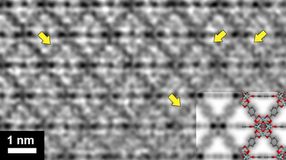Depression: Predisposition acquired in the womb?
Can a person actually be born with a predisposition to depression? The Austrian Science Fund FWF is currently supporting a new project to investigate this challenging question. Specifically, a research team led by Prof. Daniela Pollak at the Medical University of Vienna is attempting to determine whether immune responses in pregnant women lead to a subsequent tendency for depression in their children. There is already some evidence supporting that maternal infections during pregnancy can have an effect on the development of certain mental illnesses later in life – however, the extent to which this affects depression in particular is not yet known. Scientists are therefore now examining an animal model to analyse cellular and molecular processes that can lead to such a predisposition.
It is a frightening thought – but the scientific evidence is clear: Influences that an expectant mother is exposed to can have a negative effect on the child's mental development. In fact, it is generally accepted that infections suffered by the mother during pregnancy can contribute to an increased likelihood for schizophrenia and autism in their children. As part of a three-year project of the Austrian Science Fund FWF, Prof. Daniela Pollak-Monje Quiroga at the Department of Neurophysiology and Neuropharmacology of the Medical University of Vienna is now investigating whether this also applies to depression.
Of mice & men
The first objective of her work on mice, which are used here as model organisms, is to determine whether depression-like behaviour in children in later life can actually be caused by immune responses during pregnancy. Prof. Pollak-Monje Quiroga explains her other objectives: "We are also interested in whether such an immune response is linked to a change in brain development and whether that is based on the inhibition of a specific growth factor. Moreover, we are analysing the associated structural, anatomical, molecular and functional changes in the brain."
Prof. Pollak-Monje Quiroga's work is of great social and scientific importance. Mood disorders like depression are among the most prevalent and debilitating forms of mental illness – but too little is known today about the cellular and molecular processes that mediate them. For Prof. Pollak-Monje Quiroga, this is also one of the reasons why there are only a limited number of options for diagnosing and treating such disorders: "There is no independent objective diagnostic tool, such as a biomarker, for depression. We are reliant on the co-occurrence of a cluster of symptoms as a criterion. The same situation applies to treatment – substances that interact with monoamines, which are specific neurotransmitters – are most frequently used. However, their impact was discovered purely by chance more than 50 years ago and treatment with these compounds is characterised by a delayed onset of therapeutic effect and a range of adverse side effects. For a large proportion of patients, these drugs are even completely ineffective."
To help improve this situation, the scientist will spend the next three years examining the cellular and molecular processes that can lead to depression. However, she is also going one step further: "We will also look at the genetic aspects. It may be that certain genetic predispositions can be a factor in maternal immune responses during pregnancy, leading to a subsequently higher predisposition to depression. We will clarify this."
A matter of nerves
Prof. Pollak-Monje Quiroga’s work is based on the assumption that neurogenesis – the generation of neurons – in the adult hippocampus has an effect on the development of depression. The regeneration of neurons in adults actually follows the exact same pattern that it does during embryonic development, leading Prof. Pollak-Monje Quiroga to consider that even during this embryonic stage of neurogenesis, the seeds could already be sown for subsequent depression. This is a consideration that is now being investigated.
Most read news
Organizations
Other news from the department science

Get the life science industry in your inbox
By submitting this form you agree that LUMITOS AG will send you the newsletter(s) selected above by email. Your data will not be passed on to third parties. Your data will be stored and processed in accordance with our data protection regulations. LUMITOS may contact you by email for the purpose of advertising or market and opinion surveys. You can revoke your consent at any time without giving reasons to LUMITOS AG, Ernst-Augustin-Str. 2, 12489 Berlin, Germany or by e-mail at revoke@lumitos.com with effect for the future. In addition, each email contains a link to unsubscribe from the corresponding newsletter.






















































